Rhinos translocated to Rwanda
Five Eastern Black Rhinoceroses have be translocated from Europe to Akagera National Park in Rwanda where they will be ultimately released into their new and wild home.
The unique collaboration between the European Association of Zoos and Aquaria (EAZA), the Government of Rwanda and conservation NGO African Parks, allowed the rhinos, who were born and raised in zoo environments, to be transported from Dvůr Králové in the Czech Republic to Rwanda.
While their flight departed on Sunday June 23rd, their journey began years ago, with the incredible foresight and vision of EAZA in helping to supplement wild populations in secure parks in Africa with genetically-robust individuals who have been successfully bred and cared for over the years by the EAZA Ex Situ Programme (EEP).
Fewer than 5,000 wild black rhinos and only 1,000 Eastern Black Rhinos remain in Africa; and their future is severely threatened by poaching for the illegal demand for their horns. This translocation project represents an urgent and valuable opportunity to expand the range and protection of the black rhino, and demonstrate how captive rhinos can help supplement and repopulate wild populations within secure landscapes.
Chosen for the project were three female and two male black rhinos, ranging between two to nine years old. Jasiri, Jasmina and Manny were born in Safari Park Dvůr Králové (Czech Republic); Olmoti comes from Flamingo Land (United Kingdom) and Mandela is from Ree Park Safari (Denmark).

The patron of the transportation is model and conservation advocate Veronika Varekova who assisted with transport costs for the project. The rhinos are being donated to the Rwanda Development Board (RDB), the governmental body that in partnership with African Parks manages Akagera National Park, the rhino’s new home in Rwanda.
All five rhinos have undergone months of sensitisation to prepare them and minimise stress to ensure the safest journey possible, which will be approximately 30 hours long. During the voyage, they will be inside custom-made crates, and fed and watered regularly.
Experienced zookeepers from the Safari Park Dvůr Králové as well as veterinarian Dr. Pete Morkel, a world expert in rhino translocations, will accompany and monitor the rhinos throughout the entire trip, as well as their release into the Park.
“By undertaking a highly supervised and well-planned gradual acclimation process, we believe these rhinos will adapt well to their new environment in Rwanda. They will first be kept in bomas – enclosures made by wooden poles. Later, they will enjoy larger enclosures in a specially protected area. The final step will be to release them into the northern part of the national park where they will roam free,“ said Přemysl Rabas, Director of Safari Park Dvůr Králové.
Akagera National Park is an ideal destination for the reintroduction of the animals. In 2017, RDB and African Parks successfully reintroduced 18 rhinos to the Park with support from the Howard G. Buffett Foundation.
Since 2010, the Park has undergone a revival with poaching practically eliminated, allowing for key species to be reintroduced, including lions in 2015 which have since tripled in number, and rhinos in 2017 – a decade after they were last seen in the country. Strong community conservation efforts have resulted in tremendous support for the Park, and tourism is now leading to Akagera being 80% self-financing, generating US $2 million a year, which goes back to the Park and surrounding communities.

“We have been preparing for this moment for years and are excited to build on our efforts to revitalize the Park with the RDB and the successful introduction of the first round of rhinos in 2017,“ said Jes Gruner, Park Manager of Akagera National Park.
“This transport of five rhinos from Europe is historic and symbolic, and shows what is possible when dedicated partners collaborate to help protect and restore a truly endangered species.”
The strength of the Park’s management was a contributing factor in the decision for EAZA and its Members to agree to the translocation. These conditions also will allow for the ongoing study of the five animals from Europe and the existing population as they gradually integrate to contribute to a stable population of black rhinoceros in East Africa. The Park is a key component of the Government of Rwanda’s strategy to foster economic growth while providing a secure future for wildlife in the country.
“The translocation of five rhinos from European zoos to Rwanda will further enhance the natural ecosystem in Akagera National Park. This partnership with our European friends is a testament to Rwanda’s commitment to conservation. Today, poaching is almost non-existent in our four national parks and we are confident that these rhinos will thrive in their natural habitat in Akagera. They are a positive addition to Akagera, a Park where tourists can now visit the African Big Five,” said Clare Akamanzi, Chief Executive Officer, RDB.






